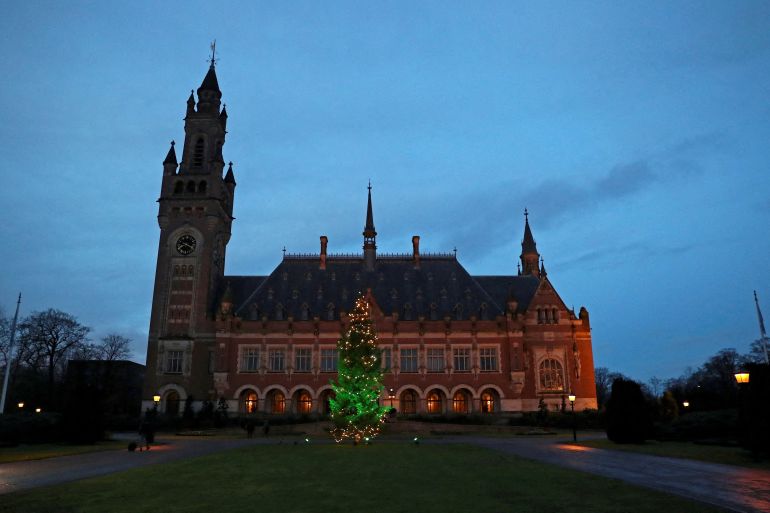UN court rejects Nicaraguan claims in maritime spat with Colombia
Colombia welcomes ICJ ruling dismissing Nicaragua’s push to extend territory beyond 200 nautical miles from coastline.

The United Nations’ top court has dismissed Nicaragua’s claims against Colombia in a decades-long legal battle over an oil and fish-rich swathe of the Caribbean Sea.
The International Court of Justice (ICJ) said on Thursday that it “rejects” Nicaragua’s arguments against an earlier 2012 ruling that gave it a large chunk of the Caribbean while awarding seven small islands to Colombia.
Keep reading
list of 3 itemsDeforestation in Colombia dropped by 29 percent, a milestone
Nicaragua orders closure of Red Cross in continuing crackdown
Nicaragua went back to the Hague-based court in 2013 to argue that its territory should extend beyond the 200 nautical miles (370km or 230 miles) from its coastline that is customary under international law.
It claimed its territory should instead follow the continental shelf that extends under the sea from its coastline. But Colombia disputed that, saying it overlaps with the area in which the archipelago of islands is located.
“Irrespective of any scientific and technical considerations, Nicaragua is not entitled to an extended continental shelf within 200 nautical miles from the baselines of Colombia’s mainland coast,” ICJ President Judge Joan Donoghue said on Thursday morning, reading the decision.
Colombian President Gustavo Petro welcomed the court’s ruling as a “great victory” for his country.
“With this ruling we hope to close the border dispute and focus on bringing sustainable development to our archipelago,” he wrote on Twitter.
Gran victoria para Colombia en La Haya. La CIJ no accedió a las pretensiones de Nicaragua sobre expandir su plataforma continental. Esperamos con este fallo cerrar la controversia limítrofe y abocarnos a llevar desarrollo sostenible a nuestro archipiélago.
— Gustavo Petro (@petrogustavo) July 13, 2023
Relations between Colombia and Nicaragua, countries that do not share a land border, have been strained for decades over disputed maritime limits.
In a related case, the ICJ ruled last year that Colombia must “immediately cease” patrolling and trying to control fishing activities and maritime research in parts of the western Caribbean off the Nicaraguan coast.
The judges said in April 2022 that the waters in question were within Nicaragua’s exclusive economic zone (EEZ).
Judgements of the ICJ, which was set up after World War II to rule in disputes between UN member states, are final and cannot be appealed.
A number of Latin American states, including Chile and Bolivia, Guyana and Venezuela, and Guatemala and Belize, have asked the UN court in recent years to resolve decades- or in some cases centuries-old territorial claims.
Speaking from the Colombian capital of Bogota, Al Jazeera’s Alessandro Rampietti reported that Nicaragua’s lawyer in the ICJ case said the country respected the court’s decision on Thursday and would comply with it.
“But tensions will remain between the two countries on a number of issues,” Rampietti said, including the human rights record of Nicaraguan President Daniel Ortega’s government.